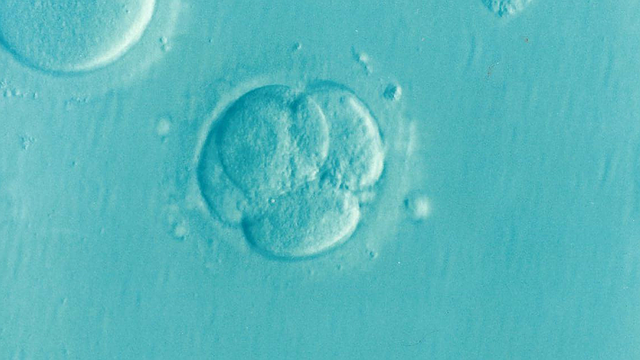A Gene Editing Breakthrough
By Tom Ashbrook,
NPR On Point [features Marcy Darnovsky]
| 08. 08. 2017
After the blockbuster announcement a U.S. team successfully edited human embryos come the tough medical and ethical questions. We’ll talk it through.
A first in the U.S.: researchers have now edited the genetic code of viable human embryos, cutting and splicing to avoid defect and disease. The DNA of human embryos. Genetically edited. The edited embryos weren’t implanted in a woman. Weren’t born. But they could have been. New life spared disease, maybe death. How far does this gene editing go? How fast? For whom? And for, or against, what human traits? This hour On Point: editing the code of human life. -- Tom Ashbrook
Guests
Amy Dockser Marcus, health and science reporter for the Wall Street Journal. (@AmyDMarcus)
Dr. Paula Amato, co-author of the study showing successful editing of genes in human embryos. Associate professor of obstetrics and gynecology at Oregon Health & Science University.
Arthur Caplan, professor of bioethics and head of the division of medical ethics at the New York University School of Medicine. (@ArthurCaplan)
Marcy Darnovsky, executive director of...
Related Articles
By David Jensen, California Stem Cell Report | 02.10.2026
Touchy issues involving accusations that California’s $12 billion gene and stem cell research agency is pushing aside “good science” in favor of new priorities and preferences will be aired again in late March at a public meeting in Sacramento.
The...
By Alex Polyakov, The Conversation | 02.09.2026
Prospective parents are being marketed genetic tests that claim to predict which IVF embryo will grow into the tallest, smartest or healthiest child.
But these tests cannot deliver what they promise. The benefits are likely minimal, while the risks to...
By Mike McIntire, The New York Times | 01.24.2026
Genetic researchers were seeking children for an ambitious, federally funded project to track brain development — a study that they told families could yield invaluable discoveries about DNA’s impact on behavior and disease.
They also promised that the children’s sensitive...
By Arthur Lazarus, MedPage Today | 01.23.2026
A growing body of contemporary research and reporting exposes how old ideas can find new life when repurposed within modern systems of medicine, technology, and public policy. Over the last decade, several trends have converged:
- The rise of polygenic scoring...




